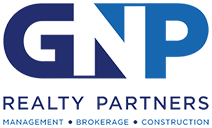If you are looking to rent your property, you’ll likely need the services of a real estate management company. A real estate management company is a professional, third-party manager that acts as your “eyes and ears” when you cannot actively manage your property, including the needs of any tenants. Engaging a property manager to handle all the issues related to your residential or commercial property can save you time and money.
The exact responsibilities will depend on the company’s areas of expertise and your specific arrangement. The most common duties include repairing and maintaining a real estate property, financial reporting for your investments and managing tenants effectively. Read on to learn how each can benefit you and your property and how property management companies can optimize your portfolio.
Want to learn more about Real Estate Management?
Request Information | or Call Us at 312-329-8400

1. Real Estate Maintenance & Repair
When you hire a company to manage your residential or commercial property, you transfer the responsibility of caring for, maintaining and making repairs to your property. By assuming responsibility for the maintenance and repair of your property, the property manager can transfer the benefits of preferred vendor pricing and other time and resource efficiencies to you and your property.
A real estate management company will assist tenants with repair requests and maintenance of common areas within your building. By overseeing facility upkeep and contractor management, your property manager will help keep tenants satisfied and happy while helping to attract future occupants.
Common maintenance and repair duties include regular inspection of shared building utilities, such as electrical and plumbing, and servicing HVAC systems regularly. In addition, property management companies typically coordinate and manage services ranging from cleaning to pest maintenance, security, IT, snow removal or other city services.
2. Financial Reporting for Real Estate Investments
As part of their core service offering, a real estate management company usually works to provide you with financials and reporting tied to your property’s profitability. Financials may be delivered to you on a recurring schedule, e.g., monthly or quarterly, depending on the level of detail the management company provides.
In addition to updates on your investment’s performance, your property management company may assist you with financial functions tied to your property. Typical responsibilities include:
- Rent and fee collection
- Mortgage payments
- Tax payments
- Insurance payments
Aside from financial record keeping, a real estate management company might also offer services that contribute to the short- and long-term planning for your investment or portfolio of investment properties. Standard services in this arena include marketing and cost budgeting.
3. Real Estate Management Company Tenant Services
A good property management company manages tenants effectively, finding suitable tenants per your requirements and working to retain optimal tenants. In the event of an unsuitable tenant, your property management company will also be in charge of following the proper eviction protocols.
This suite of tenant-specific services typically includes running credit and criminal background checks to determine the eligibility and trustworthiness of prospective tenants. Lease agreements, rent changes, regulatory adherence and ongoing communications with tenants are also part of the property manager’s responsibilities in support of tenants and the property. Additional services include:
- Determine the rent price. Unlike comparable sales, rental rates aren’t publicly-provided data. However, an established and competent firm will know the going rents in a particular area.
- Prepare vacant units. Vacant units represent more than lost income. Too many unrented offices or apartments suggest that a property is either overpriced or in poor condition. One of the most important property manager duties involves cleaning, repairing and swiftly renting vacant units to qualified tenants.
- Advertise rental vacancies. Part of minimizing vacancies involves correctly marketing them. Management companies know the best channels in which to advertise.
- Screen and approve tenants. A bad tenant is worse than a vacancy. Proper screening involves carefully vetting potential tenants, not simply accepting deposits.
- Prepare and enforce a lease agreement. Even when an off- or on-site property manager competently executes all duties, you may find yourself with an uncooperative or nonpaying tenant. In those instances, a property management company can promptly initiate and facilitate the eviction.
- Handle tenant complaints and issues. Tenants with outstanding repairs or with legitimate grievances soon become problem tenants. Management companies can deal with such issues quickly.
- Collect and adjust the rent. It’s no simple matter for an individual landlord to collect all the rent owed. Property management firms can set up automatic payment arrangements or use dedicated personnel to facilitate fast collection. They also will adjust lease renewals to reflect changes in the rental-rate market.
4. Marketing and Promoting
Marketing is an essential element of acquiring new tenants. Part of marketing involves traditional advertising efforts, such as placing print and online ads and communicating with REALTORS® and other real estate professionals. However, marketing goes beyond ad placement and waiting for the calls to come in. Property management responsibilities related to marketing include:
- Finding a professional real estate photographer to create captivating images of your property
- Creating 3D tours, drone-captured aerial videos, and/or walkthrough videos to give prospective tenants a feel for the property
- Organizing, advertising and conducting open houses and building tours
Helping individuals understand the opportunities and advantages associated with your property is an essential function of property management.
5. Administrative Operations and Logistics
Owners rarely consider administrative competence a priority when contemplating property management skills. However, managers deal with many important daily tasks, so efficiency and accuracy are essential skills. In addition to being the point of contact for the property owner and the tenant, the administrative role of a property manager includes the proper completion and storage of all leasing paperwork, including collecting and recording funds owed to the property owner and processing applications for new tenants.
Further duties may include:
- Supervise on-site employees. Caring for a property involves more than just dealing with tenants. A commercial property manager’s job description includes managing on-site employees and contractors, such as cleaning and maintenance staff.
- Handle evictions and process move-outs. Evictions and unit refreshes are some of the least desirable landlord duties but are on any list of property management responsibilities.
- Ensure the property is legally compliant. Property managers should know all applicable local, state and federal statutes.
6. Risk Management
In one way or another, all commercial and residential property manager duties tie into risk management. Property managers should adhere to all federal and state laws in performing their duties, including ensuring that no discrimination occurs during the tenant application process. They must also remain informed about new or changing regulations that could impact tenant relations.
Risk management also extends to administrative functions, e.g., vetting and maintaining lists of approved vendors for routine matters or emergencies and compiling accurate tax documents promptly. Indeed, proper record-keeping and accounting practices help mitigate the risk of a tax audit and potential court actions from tenants. Some property management firms go so far as to provide liability insurance that covers the property owner.
7. Property Security and Monitoring
A final duty of property managers involves safeguarding the property and its tenants. The nature of the security employed will depend on the specific type of building and its intended uses. Residential apartment complexes may require only basic safety and security measures, such as deadbolts, smoke and carbon monoxide detectors, signage for emergency exits and on-site security personnel should the location require it. Commercial and residential structures in highly trafficked areas may require higher levels of security, including 24/7 monitoring, regular patrols, integrated alarm systems and high-tech biometric access control systems.
While property managers may not directly be responsible for providing security personnel, if they are already on site or owners request this service, it is part of a property manager’s job description to manage them. The same is true for security systems and other safety upgrades. While owners may or may not be able to recoup these expenses through rents or fees, integrated security systems can add value to the property and increase efficiencies, defraying the installation cost.
Save Time & Money with a Real Estate Management Company
When you hire a company to help you manage your residential or commercial property, you work with a knowledgeable team of industry experts to support your investment. In addition, engaging a property manager can grant you peace of mind in knowing that your tenants will receive timely responses to their inquiries and that you won’t be the point of contact for general maintenance and repair requests.
If you need a property manager for your property, look no further than GNP Realty Partners. In addition to our senior staff boasting over 250 years of combined real estate experience, we are an Accredited Management Organization® (AMO®), a designation conferred by the Institute of Real Estate Management (IREM). Fewer than 550 firms have received this elite designation. More than that, your gain is our goal, and we will always seek to manage your property as though it were our own.








